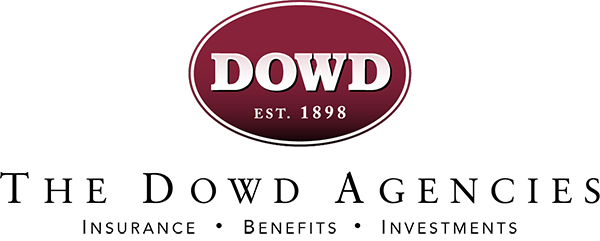
An ounce of prevention may prevent a pound of headaches
As the weather turns cooler—and in New England, downright cold—we spend more time in our homes, and the risk for some types of potentially catastrophic home damage increases.
The two most common type of seasonal loss reported by homeowners in the fall and winter months are water and fire damage.
Water damage
Unfortunately, water damage caused by frozen and burst pipes can be all too common in our region. Here are a few ways you can avert this potential disaster:
- Insulate pipes in your home’s crawl spaces and attic, even if you live in a climate where freezing is uncommon. Exposed pipes are most susceptible to freezing.
- Seal air leaks. Not only will this improve your home’s heat efficiency, but it will also protect your pipes. With severe cold, even a tiny opening can let in enough cold air to cause a pipe to freeze.
- Before winter hits, disconnect garden hoses and use an indoor valve to shut off water to the outside, then drain water from outside faucets to reduce the chance it will freeze in the short span of pipe just inside the house.
- If you plan to travel during the cold months––especially for an extended period of time––shut off the main water valve to your house before you leave.
- Keep your thermostat set to a minimum of 55 degrees Fahrenheit, even if you are away from home. If you are a “snowbird,” it’s also wise to ask a friend or family member to check inside your home periodically while you are away to ensure everything is working as it should.
Fire damage
With fires and space heaters for warmth, candles and holiday décor for ambiance, and more indoor cooking and entertaining, the risk for fires in homes increases exponentially in the colder months. Keep these helpful tips in mind:
- Be sure your chimney is inspected and cleaned regularly based on how much you use it, and ensure the flue is open before you light a fire.
- Candles should not be left to burn unattended, or within easy reach of children, pets and flammable materials like curtains and holiday decorations. The same goes for space heaters.
- Take care not to overload electrical outlets with holiday decorations or small appliances like space heaters.
- Do not leave items on the stove unattended, and keep towels and other flammable materials away from the cook top.
- Be sure you have a fire extinguisher easily accessible in your home, and that you know how to use it.
Other hazards
While water and fires can cause tremendous damage in a home, there are other hazards that increase during the colder months as well. We’ve already experienced some overnight frost, and black ice and snow are sure to follow. Be sure you keep your walkways and driveways cleared and sanded as needed to prevent slips and falls for which you may be responsible.
Break-ins are also more likely to occur as the holidays loom closer and thieves know houses may be empty and stocked with gifts. Shut your curtains at dusk to prevent would-be burglars for scoping out what’s in your house. Use a timer for indoor lights if you are traveling so your house doesn’t look empty, and hire someone to keep the driveway and walkways clear. Installing motion sensor lights outdoors is also a deterrent, as is a security system, which may even qualify you for a discount on your homeowners policy.
Your home, whether it is a house or a condominium, is likely to be your single most valuable asset. That’s why homeowners insurance coverage is so important. Even if you rent your home, the landlord’s insurance only covers the structure, not your belongings, which is why you need renters insurance. If you have any questions about your policy, remember, we’re here when you need us.
